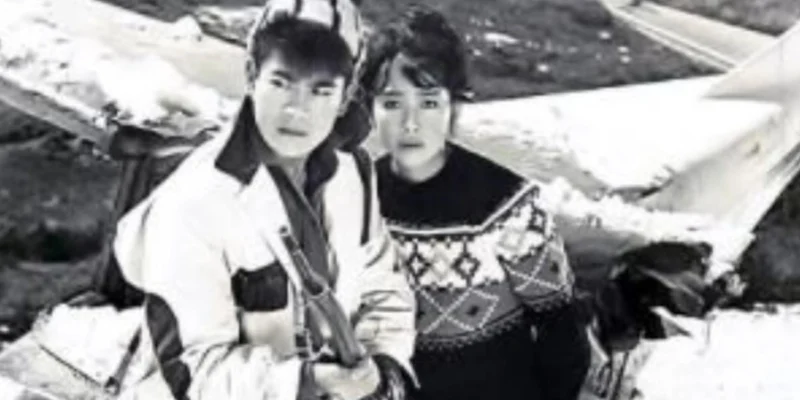
Tamami Chiba quietly shaped a Japanese entertainment dynasty from behind the scenes.
Who is she? Why does her name matter in Japanese entertainment circles? Let’s unpack the story of a woman whose influence extends far beyond her limited public appearances.
Who Is Tamami Chiba?
Tamami Chiba gained recognition as the former wife of legendary Japanese martial arts actor Sonny Chiba. She maintained a private life while supporting her husband’s high-profile career in the entertainment world.
She grew up in Japan with traditional values that steadied a family living amid international stardom.
She rarely stepped into the public eye, choosing instead to focus on family stability and cultural continuity. This choice shaped how her children would later approach their own careers in entertainment.
Her marriage to Sonny Chiba began in 1996 and lasted nineteen years until 2015. During this significant chapter, she stood by him through critical career moments while maintaining their home life.
Their long partnership rested on mutual respect and dedication to family values. These qualities would later show in how their children approached their own paths in the entertainment world.
Family and Children
Tamami Chiba’s most visible legacy shines through her children, especially her son Mackenyu. Born Mackenyu Maeda on November 16, 1996, in Los Angeles, he has become an international star in his own right.
She raised her sons to blend tradition with global opportunities, helping them thrive on international stages.
Mackenyu gained global fame playing Zoro in Netflix’s live-action One Piece, expanding his reach far beyond Japan.
Before his international success, Mackenyu received the 40th Japan Academy Newcomers of the Year Award in 2017. This recognition came after his portrayal of Arata Wataya in the “Chihayafuru” live-action trilogy.
Her younger son Gordon Maeda has also pursued acting, though with a lower public profile than his older brother. The artistic drive clearly runs through the family’s veins despite their mother’s preference for privacy.
Her nurturing created an environment balancing tradition with modern opportunity. This approach helped her children develop talents while maintaining strong cultural connections to their Japanese heritage.
Connection to Entertainment Legacy
While Tamami Chiba avoided professional involvement in entertainment, her influence flows through both her former husband’s and children’s careers. Her steady presence provided stability amid the chaos of show business.
Sonny Chiba, who passed away in 2021 at age 82 from COVID-19 complications, pioneered martial arts cinema. He appeared in over 200 films and television shows during his sixty-year career.
His most famous roles included “The Street Fighter” series, “Kill Bill,” and “The Fast and the Furious: Tokyo Drift.” These performances cemented his status as a martial arts legend in global cinema.
Born as Sadaho Maeda in 1939, Sonny trained extensively in various martial arts disciplines. He earned multiple black belts and became one of the first actors to achieve stardom through genuine martial arts skills.
Tamami’s support during his later career years provided the stability needed for his continuing success. Her role as family anchor allowed him to maintain his professional momentum into his senior years.
Influence on Mackenyu’s Career
Recent articles highlight how Tamami Chiba’s parenting shaped Mackenyu’s development as an actor carrying forward his father’s legacy. Her guidance helped him navigate the complex entertainment landscape across cultures.
Her son successfully balances careers in both Japanese and American industries. This versatility reflects the balanced upbringing she provided, allowing him to move between different cultural contexts with ease.
Mackenyu’s martial arts training began early, following his father’s path. He practiced Kyokushin Karate from age eight and placed third at the US Kyokushin Karate Nationals during middle school.
This foundation in martial arts, supported by his mother after his parents’ divorce, proved invaluable. Many of his roles require physical prowess that connects back to his father’s legacy and his mother’s support.
Recent Coverage and Privacy
The most comprehensive profiles of Tamami Chiba appeared in December 2024. Articles from entertainment magazines offered insights into her life and continuing influence on the family legacy.
These pieces stress her role as a steadying force in the Chiba family, particularly how her parenting shaped the next generation. Her quiet influence stands behind the visible success of her children.
As of early 2025, media attention focuses primarily on her son Mackenyu’s rising international career. This focus, rather than on Tamami herself, aligns with her consistent preference for staying out of the limelight.
No recent interviews with Tamami appear in available media, suggesting she maintains her private lifestyle. This choice reflects her lifelong approach to fame by association.
The Continuing Legacy
Tamami Chiba represents an important but often overlooked figure in Japanese entertainment. While maintaining personal privacy, her influence extends through her children, especially Mackenyu, who carries on the family tradition.
Recent coverage acknowledges her quiet but significant contributions to a family that shaped global perceptions of Japanese martial arts cinema. Her story shows how powerful behind-the-scenes influence can be.
Though she remains largely out of public view in 2025, her legacy continues through her children’s achievements. They build upon foundations she helped establish, balancing tradition with innovation.
The balance of cultural values and forward-thinking she instilled shows in their versatile careers across international entertainment. This approach bridges generations and markets in an increasingly global industry.
Final Thoughts
Tamami Chiba’s story reminds us that not all influential figures seek the spotlight. Powerful cultural influence often happens quietly—through steady family values and guidance.
As her son Mackenyu continues gaining international recognition, the foundation she built grows more apparent. Her approach to balancing privacy with supporting public careers offers lessons for families in entertainment.
For fans of Japanese cinema, martial arts, and emerging international stars, understanding Tamami Chiba adds valuable context. Her story completes our picture of an entertainment dynasty spanning generations and continents.









